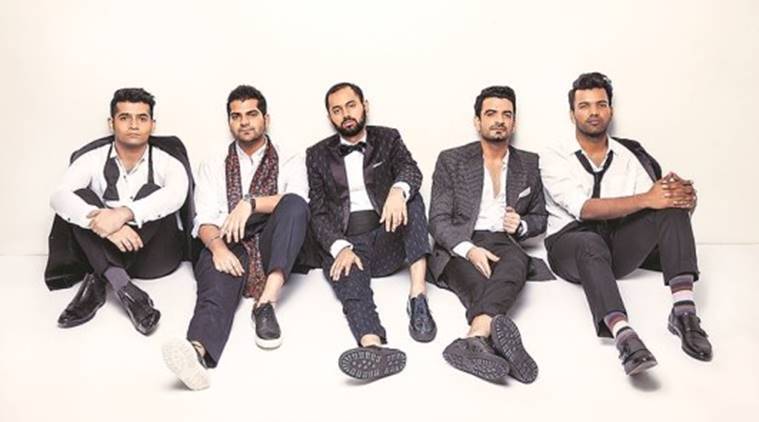 Members of The Yellow Diary
Members of The Yellow Diary
Its five members might describe their band, The Yellow Diary, as an “agnostic music collective” but for most of their listeners the band brings together ‘poetry with rock’, exploring a range of emotions. In Chandigarh to talk about their latest single, the soulfully composed Rab Raakha, the band members of The Yellow Diary – Himonshu Parikh (music production, keyboard, backing vocals), Rajan Batra (vocals, songwriting), Vaibhav Pani (guitar), Sahil Shah (drums) and Stuart DaCosta (bass) – shared their passion for music and how they got together four and a half years ago in Mumbai.
“We all come from different walks of life… corporate, merchant navy, advertising, but the love for music connected us,” says Parikh. An engineer, he is on the keyboards and is responsible for production and backing vocals. He also helps fine tune the lyrics. A former naval cadet, Batra is the lead vocalist and lyricist for the band, who infuses his contemporary melodies with Indian classical music. Pani is an IT consultant and DaCosta is an accounts executive. On the drums, Shah uses an eclectic blend of jazz and modern drum theory, producing beats that make the band’s tracks memorable. He is also an alumni of the prestigious Conservatorium van Amsterdam.
The band has released two EPs since they were formed. The first, Marz, comprises three tracks, including Afzai, Kashmir and the re-released version of Marz. The second, Izafa, has Dheere Se, Buniyaad and Nusrat Fateh Ali Khan’s Tere Jiye Hor Disda. Their music is alternative pop rock, and the lyrics are multilingual.
“The Yellow Diary, our name itself, is symbolic of the ‘Dear Diary’ personalisation. Our music is a reflection of personal experiences and personal journey, something most of us pen in our journals/diaries,” says Parikh. The word ‘yellow’, for them, is all-encompassing, as it denotes a spectrum of emotions – from peppy, bright and happy to the deeper emotions. “What we write, compose and perform are our experiences, thoughts and opinions. For instance, Rab Raakha is about being on a journey and not forgetting the loved ones left behind or the ones looking up to us. Marz was about the constant conflict between the heart and mind,” says Batra, who writes in Hindi, Urdu and Punjabi. Our music, adds Himonshu, is “self expressive”. “It’s not specific yet it resonates with the listeners,” he notes.
While Marz has crossed six million views on YouTube and Rab Raakha three million, the band members feel nothing can compare with performing live and engaging with the audience. “We’ve performed here too, in Chandigarh, and it has a great audience. We wish to perform here again,” says Parikh.